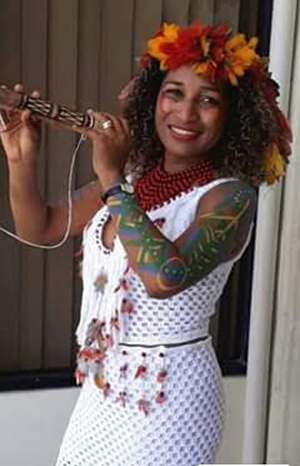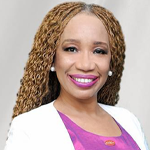WE are celebrating the last Sunday in May and it feels awesome.
Thank you to all the people who sent feedback from the article last week. We will continue with the “Power of Diversity” this week.
I am not sure if my fellow Guyanese understand how fortunate we are to experience the different cultures we experience daily throughout these 83,000 square miles. I encourage us to try to get to know more about other people’s religion and cultures. I heard someone referring to the term MILO (moment in the life of others) and it intrigued me because our culture scape can make us see the best or worse in others. So many times people judge other’s actions without knowing anything about the person or circumstances. One thing I can say is that we are adaptable. It helps to be open-minded because it actively works on managing our unconscious biases to remain open to possibilities.
I remember when I was dating this Irish guy and he was visiting me around the time they celebrated St. Patrick’s Day. We invited some people and they totally enjoyed it. They even wanted to know more about the significance of St. Patrick’s Day.
Life can be simple but we overcomplicate things. We need to actively seek to view situations from the perspectives of others. Aaida Bacchus is a brilliant and hard-working young lady who is not only beautiful but caring. I met her at my first Muslim wedding and was so detailed and patient in explaining every step to me. I asked her to share her view on this topic:
“Guyana is known for its rich cultural diversity as we are a multicultural, multiethnic society. Growing up as a Muslim, I’ve learnt that Islam teaches peace and unity. Cultural diversity is one of the basic characteristics of human society and is an asset which is indispensable to the progress of humanity. Cultural diversity is to show respect to the beliefs and practices of the adherents towards different religions. It is the basic tenet of Islam. The Quran assures us that we can live together in peace and harmony with people of other faiths.
The Quran says: ‘O humankind, indeed We have created you from male and female and made you peoples and tribes that you may know one another. Indeed, the noblest of you in the sight of Allah is the most righteous of you. Indeed, Allah is Knowing and Acquainted’ (Surah Al-Hujurat, 49:13)
The existence of different cultures and societies is acknowledged and embraced in Islam in this verse. It also notes that each tribe — or society — has its own distinctive features that separate it from one another, and it goes to show that these differences are not at all condemned or disapproved but respected as part of creation. Islam doesn’t seek to radically change a society’s culture. To do so would be against the holistic nature of Islam.
However, at the same time, as Muslims, we should always practise what is said in the Quran:
‘Show forgiveness, enjoin what is good, and turn away from foolishness’
(Surah Al-A’raf, 7:199)
Though Islam doesn’t deny us the right to embrace our cultural traditions, there might be practices that are against the commandments of Islam. As seen in the Arab community before the arrival of Prophet Muhammad s.a.w, certain cultural practices have to be abandoned as they do not bring benefits and only harm the society. Only then can we enjoin what is good in our culture and the teachings of Islam to bring benefits to ourselves and our community.
Diversity is a natural phenomenon created by God and we are bound by the laws of nature to this diversified world, where religions and cultures exist next to each other in the same lands and countries. The Quran assures us that we can live together in peace and harmony with people of other faiths. Islam is a religion that maintains peaceful co-existence and integration within a society by putting disputes aside and emphasising more on the concept of unity and brotherhood.
I also asked Bibi Ramlall Khan, who is one of the makeup artists who fixes me up for my photoshoot and special occasions. “ I really like Christmas, I don’t like the way it’s being commercialised nowadays- it feels like it’s all about making money. But I like the idea of it.
The way families come together from near and far to meet up and have a meal together and exchange thoughtful gifts and get to spend quality time. You can always find a certain level of unity among people during these two holidays that tends to be generally missing. It’s nice to see everyone come together to play Phagwah and to see everyone going out to watch the motorcade for Diwali.”
I also needed a male perspective and Guyanese-Canadian Habeed Alli provided that.
“As a Muslim, I enjoy participating in festivals and holidays of other faiths, because it gives me a sense of solidarity and love across divides and that we are one human family; when I hear the hymns or eat the sweets or stand up against injustice- it makes us family!
It is a great way to look at each other as family no matter where we are from. I have a family who look so different to the way I look and I am sure that many will resonate with that. I love having that access to diversity because it adds so much beauty to life.”
I have incorporated many cultural concepts in my collection over the years. When I visited India I purchase lots of saris and I even wore them to many places, including church. The fabric is so beautiful and I converted some of them into gorgeous dresses.
I have seen people from various back group wear outfits with Afro-centric prints I have a few indigenous outs from Natasha David designs. I was on vacation on the Royal Clipper and wore an indigenous outfit designed by Ms Calistro and I was the belle of the ball. As they say, variety is the spice of life as we celebrate this beautiful journey called Life BEYOND THE RUNWAY.



.jpg)








